Amid a Sunni rebellion against the Maliki government, Kurdish parties in Iraq have not prepared for independence.
Kurdish armed forces, the Peshmerga, are heavily involved in the Iraq crisis. They continue to combat the Islamic State, a jihadist group previously known as the Islamic State of Iraq and the Levant (ISIS), and have gained territory south and east of the Kurdistan Regional Government (KRG) area, including the disputed Kirkuk. In latest developments, Peshmerga forces have seized control of the Kirkuk and Bai Hassan oil fields, which was condemned by the Oil Ministry in Baghdad. Kurdish leaders, including KRG President Massoud Barzani, have indicated they do not intend to give up control of the disputed territories.
Kurds in Iraq were heavily oppressed under Saddam Hussein. Part of this oppression was the Anfal campaign, which included the Halabja gas attack in 1988 and an Arabization policy in areas such as Kirkuk. While a Kurdish Autonomous Region was established in 1970, Iraqi Kurds only saw an improvement in their semi-autonomous status after the Gulf War of 1990-91, the toppling of the Baathist regime and, ultimately, the US pullout in 2011. Ties between Baghdad and the KRG have been tense for years, as issues such as oil revenue and political power cause friction, while the situation of the armed forces remain unresolved.
Amid the current crisis in Iraq and the political impasse in Baghdad, Barzani has asked the Kurdish parliament to prepare for an independence referendum. The KRG president stated, “Iraq has been divided.” Further steps toward an independent Kurdistan are likely to strain relations with the Iraqi government, and could be the final nail in the coffin of a united Iraq and herald a new level of Kurdish self-determination.
Fair Observer’s Manuel Langendorf talks to Kurdish journalist and political analyst Kamal Chomani about the situation in Iraq, the Kurdish bid for independence and the future of the country.
Manuel Langendorf: Kurdish Peshmerga forces have been very active in the current fighting in Iraq and have, for example, seized the disputed city of Kirkuk, an important oil hub often described as the Kurdish “Jerusalem.” What is the aim and strategic thinking of the Kurdistan Regional Government (KRG) and its armed forces in the conflict?
Kamal Chomani: First of all, if Kurdish Peshmerga forces had not filled the vacuum that Iraq’s army created in disputed areas, either Kirkuk would have become a battlefield or Islamic State extremists would have arrived at the doorsteps of the city. It would have, therefore, become a threat for thousands of people as well as for Kurdistan. Peshmerga forces were able to control the areas where Iraqi armed forces had earlier been deployed. This limited the Islamic State’s ability to advance on Kurdish territory. International media organizations have overblown “the seizure of Kirkuk,” but they miss the point that if the Peshmerga had not taken these territories, then the Islamic State would have done so.
The KRG’s aim, which all Kurdish political parties have unanimously agreed upon, is that Kirkuk’s destiny should not be delayed any longer. A referendum on the status of Kirkuk and other disputed territories should have been carried out in 2007, according to Article 140 of the constitution. A potential incorporation of Kirkuk into the KRG should be based on a mutual stance of both dominant Kurdish parties — the Kurdistan Democratic Party (KDP) and the Patriotic Union of Kurdistan (PUK).
Langendorf: What is their view on this?
Chomani: There is a division between the KDP and PUK on this issue. KRG President Massoud Barzani stated after his visit to Kirkuk on June 26 that we should not talk about the implementation of Article 140 or even question it. But the PUK prefers to go through Baghdad as Article 140 is a constitutional issue.
Kurds in Iraq were heavily oppressed under Saddam Hussein. Part of this oppression was the Anfal campaign, which included the Halabja gas attack in 1988 and an Arabization policy in areas such as Kirkuk.
Whereas Barzani asks for a referendum to be held for Kirkuk through the KRG’s upcoming Electoral Committee — parliament will pass a bill for it in the near future — PUK leaders, especially the ones from Kirkuk, have clearly said the current situation has made the implementation of Article 140 much easier. A further confrontation with Baghdad could, therefore, be avoided. Beyond any doubt, all Kurdish people aim at the incorporation of our “Jerusalem,” a term Jalal Talabani once used for Kirkuk. However, there is no common and clear strategy at present. In that sense, the participation of all political parties, instead of unilateral statements on behalf of different Kurdish figures, is imperative. Despite Barzani’s statement that Kurds want to make Kirkuk a place for coexistence, peaceful life and better public services, the implementation of specific policies toward this direction are still pending.
Security and Peshmerga forces should not withdraw from Kirkuk again, a mistake repeated in 2003 and 2007 due to US pressure. Before 2011, we thought that American presence on Iraqi soil, as well as Iraq’s subjection to Chapter VII of the United Nations (UN) Charter, would guarantee peaceful coexistence in a united Iraq devoid of any exercise of violence against Kurds. Instead, the situation is now very different and complicated. US forces are no longer present and UN sanctions are not in place. A potential withdrawal from Kirkuk and other disputed territories would be a tragic mistake, given that Iraq’s armed forces were not able to resist the Islamic State’s offensive.
Undoubtedly, the KRG will wait and analyze the situation. But focusing on the legalization of incorporating Kirkuk into the KRG, with the consent of Iraqi forces, appears to be the most suitable move. On these grounds, we could further work in favor of Iraq’s reunification — of course, with strengthening Iraq’s federalism by creating a Sunni region in Sunni-dominated provinces.
Langendorf: The situation in Iraq has led to interesting dynamics with regard to Kurdish independence — an option that President Barzani has openly raised. Will the Kurds in Iraq push for independence? How united are the different Kurdish factions on this issue?
Chomani: I don’t think Kurds in Iraq are going to push for independence — not at the moment. Rather, I think Kurds will continue working on gaining independence. Unfortunately, the ruling Kurdish parties have not prepared Kurdistan for full autonomy. Therefore, I do agree with Barzani’s deputy, Kosrat Rasul Ali, that prior to independence there are some conditions that should be addressed. I also agree with Fareed Asasard, one of the PUK’s leaders and head of the Strategic Studies Center, who underscored that independence in times of peace is more stable than during chaos.
As independence is our long deferred dream, few people can criticize claims for Kurdish autonomy. But most intellectuals who are really aware of the Kurdish cause insist that independence is not desired at the moment. We have already experienced two failed declarations of independence — one in the 1920s in Slemani and the other in 1946 in Mahabad. I believe declaring independence should not be done for the sake of scoring a historical event or becoming a known figure, but for the sake of a stable, democratic and independent country.
For the last part of your question, unity is the most important task before declaring independence. Unfortunately, we are not united. Kurds are divided on two issues: Iraqi Kurdistan and other Kurdish lands. In Iraqi Kurdistan, it is clear the KDP and PUK have differing views over independence due to their stances on Turkey and Iran. Ever since Barzani’s comments on full autonomy, Iran has taken a harsh position against the move, whereas Turkey initially kept silent due to its good relations with the KDP. I believe the PUK has better analyzed the situation, as it underscores that independence should not destabilize the region. The party also believes that, for independence, Iran should accept the formation of a Kurdish state in present-day Iraq to ensure that ties are amicable in the future.
The history of the country has showed that Iraqis have not been able to coexist due to political conflicts. If Iraq falls apart, the people need to cast their differences aside so they can all live in peace.
I support working hard to protect Kirkuk and call upon Turkmen, Arabs and other communities to vote yes for incorporating the city and other disputed areas into the KRG. If we can protect Kirkuk, win it legally and have control over oil, we will nearly be independent. I also prefer the idea of those who call for a division of Iraq into separate states, with a weak central government. This will bring stability to other parts of Iraq, especially for Sunnis as they will enjoy their take of power.
Langendorf: What do regional actors think of Kurdish independence, including Iraq, Syria, Turkey and Iran, all of which have significant Kurdish populations?
Chomani: In 2003, we chose to join Iraq again under an Iraqi constitution and a federal state structure. However, Kurds were ready to seek independence if the constitution was violated. So far, most of Iraq’s constitution items, including Article 140, have been violated by Nouri al-Maliki’s government. Thus, Baghdad should work on implementing the constitution. Otherwise, Kurds can no longer be part of a country in which their existence is in jeopardy. If independence is announced, Iraq would be the most important country to recognize Kurdistan as it would be our neighbor. On disputed areas, we should reach a final agreement as Sunnis will be our neighbors, not the Shia.
Syria has not taken any position yet as the regime is falling apart. However, the country is very important in many ways. The Islamic State rules part of Syria, so it is a serious threat. In an independence scenario, we need good relations with Damascus and ties might be easier if Kurds can protect their liberated region, even though bad relations between the KDP and Kurdistan Workers’ Party (PKK) have negatively impacted the Kurdish uprising there. Syria could be the bridge to reach international ports, which we require to be less dependent on Turkey. Ankara has economic interests in Iraq and the KRG. If it finds better opportunities in Baghdad, then it will back the central government instead.
Turkey has taken a different position for the first time over independence. But there is a difference between the ruling Justice and Development Party’s (AKP) position and the hostility of the National Movement Party (MHP) and the Republican People’s Party (CHP). Even the AKP’s support is unclear, as Foreign Minister Ahmet Davutoglu declared that Ankara stands in favor of Iraq’s unity. Overall, it is more of a neutral position considering Turkey’s economic interests in the KRG, which it does not want to jeopardize. Our economic ties with Turkey are huge but unbalanced, as Turkey profits more than the Kurds do.
Iran is the only regional country that has announced its opposition to an independent Kurdistan. Tehran does not want Iraq to fall apart, as the Shia dominance would disappear and Sunnis would rise again. Iran is also afraid that Kurdistan’s independence may fuel its own Kurdish movement to ask for their political, civic and cultural rights. But we should not forget that Iran has important political and economic interests and, therefore, may take a different position if Kurdistan receives widespread support for independence.
Langendorf: If a Kurdish bid for independence succeeds, what will this mean for Iraq, the Kurdistan region and the Kurdish community in terms of historical, political, economic and security implications?
Chomani: If a Kurdish bid for independence succeeds, Iraq will be split up into three countries: Kurdish, Sunni and Shia. I don’t think Sunnis will accept a Shia-dominated government, as the former will have no partner in office if a Shia majority deprives them of their rights. In an independence scenario, the incumbent government would need to regulate its relations with the two new states to avoid further bloodshed. Failing to do so will result in a continuation of suffering.
For the Kurdistan region, a bid for independence would bring many difficulties as the route toward state-building is rocky, which is why the KRG has to prepare in terms of its security, food and economy. The whole Kurdish community will seriously observe any moves toward independence, as Kurdistan’s breakaway needs to go hand in hand with improved freedoms, public services and democracy.
As far as security is concerned, the threat from the Islamic State against Kurdistan will continue. Therefore, the international community ought to remove the terrorist organization from Sunni areas, so citizens can better manage their own country and Kurdistan’s security will not be at risk.
The history of the country has showed that Iraqis have not been able to coexist due to political conflicts. If Iraq falls apart, the people need to cast their differences aside so they can all live in peace.
The views expressed in this article are the author’s own and do not necessarily reflect Fair Observer’s editorial policy.
Support Fair Observer
We rely on your support for our independence, diversity and quality.
For more than 10 years, Fair Observer has been free, fair and independent. No billionaire owns us, no advertisers control us. We are a reader-supported nonprofit. Unlike many other publications, we keep our content free for readers regardless of where they live or whether they can afford to pay. We have no paywalls and no ads.
In the post-truth era of fake news, echo chambers and filter bubbles, we publish a plurality of perspectives from around the world. Anyone can publish with us, but everyone goes through a rigorous editorial process. So, you get fact-checked, well-reasoned content instead of noise.
We publish 2,500+ voices from 90+ countries. We also conduct education and training programs
on subjects ranging from digital media and journalism to writing and critical thinking. This
doesn’t come cheap. Servers, editors, trainers and web developers cost
money.
Please consider supporting us on a regular basis as a recurring donor or a
sustaining member.
Will you support FO’s journalism?
We rely on your support for our independence, diversity and quality.



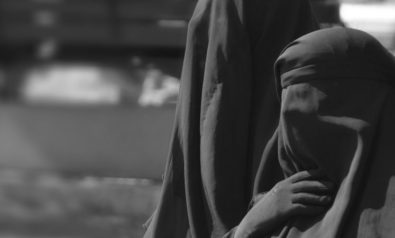
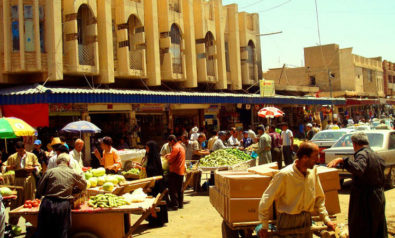
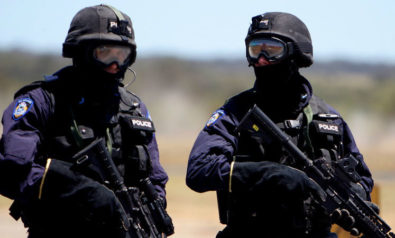

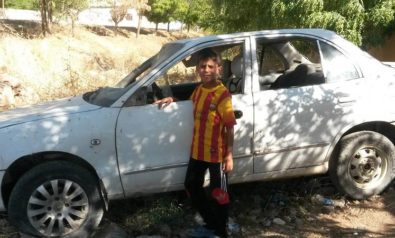
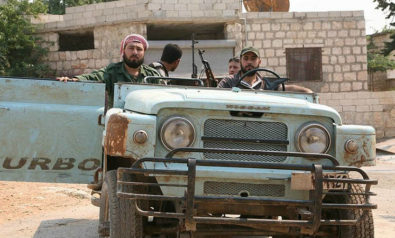
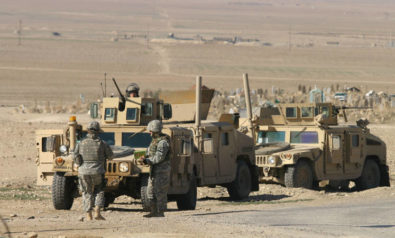
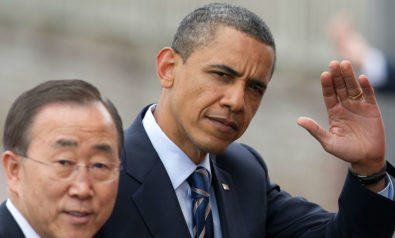

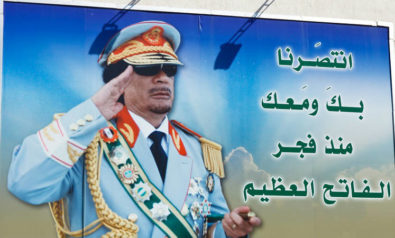


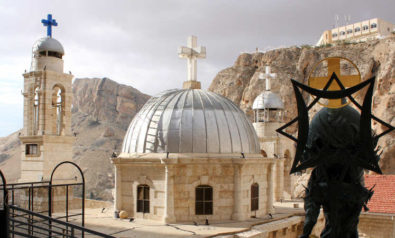


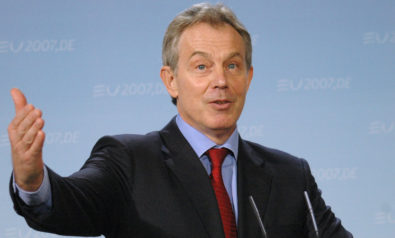
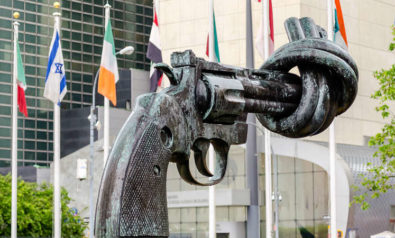

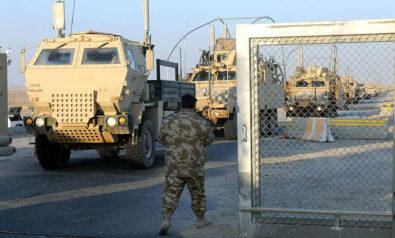





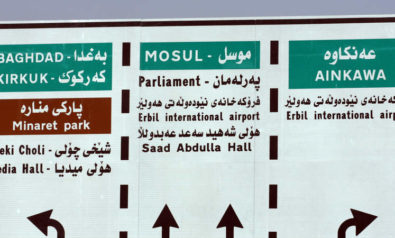
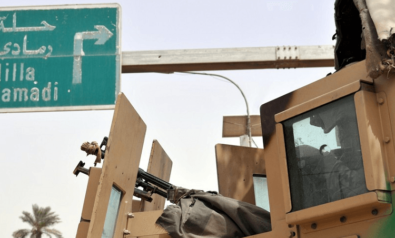


Comment